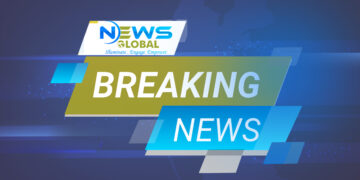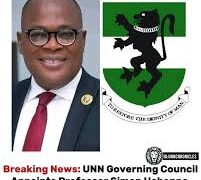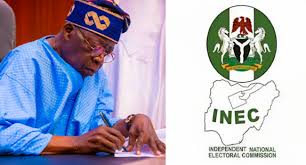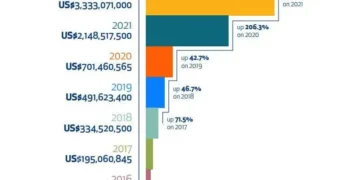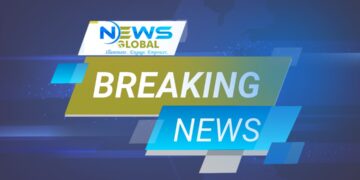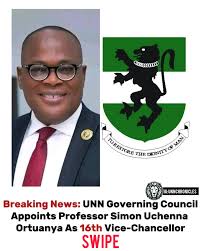Abuja, 09 October 2025 — The civil society organisation Speak Out Africa Initiative (SOAI) has issued a stinging critique of the University of Nigeria, Enugu Campus (UNEC) over the newly imposed ₦30,000 “developmental fee,” accusing the institution of denying students’ right to exam access and demanding both reversal, investigation by the supervising ministry and transparent budgeting.
In a press statement made public today, SOAI described the fee as an unjust burden on students and families already grappling with inflation, economic hardship, and rising costs of living. The organization challenged the university’s decision to bar some students—especially in medical and allied faculties and in particular 300 level 027 Nursing students from examinations owing to unpaid levy, calling such acts a violation of students’ rights and a breach of contract.
“Once a student meets the existing tuition and fee requirements, barring them from exams constitutes a breach of contract, a violation of their rights, and an academic injustice,” the statement affirmed.
Key Critiques from SOAI
1. Imposition Without Justification or Equity
SOAI noted that students allege the ₦30,000 fee was added on top of existing charges, without clear rationale or consultation. The term “daylight extortion,” used by protesting students, was cited in the statement as capturing the moral wrong of covert levies.
2. Denial of Exam Access
The move to prevent students from writing exams for nonpayment, especially when implemented less than three weeks after announcement, drew sharp condemnation. “No student should lose academic progress or suffer institutional punishment under such conditions,” SOAI argued.
3. Lack of Fair Representation
The university formed a committee of 14 persons on 22 September 2025 to approve the fee, including just one student representative (the SUG President). SOAI says this 1:13 ratio forecloses fairness or accountability — decisions of such magnitude demand broad stakeholder engagement.
4. Economic Hardship Intensified
Citing Nigeria’s macroeconomic pressures—rising fuel (PMS) prices, inflation, food insecurity—SOAI warned that the extra ₦30,000 burden could force students to choose between education and survival.
5. Damage to Institutional Legitimacy
SOAI insisted that the integrity of Nigeria’s leading universities must rest on fairness and students’ welfare, not on ad hoc revenue measures targeted at vulnerable learners. It further condemned the university’s approach, noting that forcing poor students to finance infrastructure or “development” is contrary to the responsibilities of a federal institution.
Legal & Ethical Foundations Invoked
SOAI grounded its demands in constitutional and ethical principles, citing:
- Right to Education: Guarantee under Nigerian law and international covenants that penalizing students for inability to pay extra levies is inconsistent with Nigeria’s obligations.
- Contractual Obligation: Payment of official fees binds the institution to allow lectures and assessments; unilateral impositions violate that agreement.
- Procedural Fairness & Administrative Justice: Decisions affecting students must be transparent, participatory, and just.
- Equity & Non-Discrimination: Imposing levies that disproportionately harm underprivileged students deepens inequality.
SOAI’s Demands & Recommendations
SOAI laid out a comprehensive set of corrective actions:
- Immediate Reversal & Cancellation
- Rescind the ₦30,000 levy immediately.
- Refund any payments made (or convert into non-monetary value).
- Ensure no student is punished or denied academic access for nonpayment.
- Reinstatement of Students
- Restore all students currently barred (e.g. in nursing and related faculties) to exam access without prejudice.
- Publicly affirm their academic standing.
- Public Accountability & Explanation
- Vice Chancellor Professor Simon Uchenna Ortuanya should publicly denounce the policy, clarify its origin, and reconnect with students.
- University management must disclose decision-making process and safeguards against recurrence.
- Inclusive Fee Review Forum
- Establish a representative forum (students, faculty, civil society, parents) to review and redesign equitable fee structures.
- All future fees must undergo stakeholder consultation, especially where student welfare is affected.
- Government & Human Rights Oversight
- Federal Ministry of Education and regulatory agencies should intervene.
- National Human Rights Commission (NHRC) should open investigation into rights violations.
- University governance bodies (senate, audit, internal checks) must review previous fee decisions.
- Institutional Safeguards & Reforms
- Any future levies must be justified and transparently managed.
- A student welfare fund or means-based subsidy scheme should protect students with limited means.
- The university should publish budget breakdowns showing how development fees would be used.
The statement further said that it is too early and sends wrong signal to the populace thatProfessor Simon Uchenna Ortuanya who was recently appointed the 16th Vice Chancellor of the University of Nigeria in August 2025 – barely 1 month ago, is seen to be inflicting economic injury on the already over-stretched poor students trying to survive.
As a newly inaugurated leader, his administration now faces early tests of legitimacy and responsiveness. SOAI’s statement implies that he must quickly distance himself from regressive policies and demonstrate commitment to student welfare while being reminded that the university and in particular education is not a money-making venture.
Final Word & Call to Action
This is more than a local campus dispute. It is a test of values: whether education in Nigeria remains a right or is commodified for institutional gains. The tone and nature of the response from UNN, regulatory bodies, and the federal government will send strong signals to students nationwide.
Speak Out Africa Initiative (SOAI) stands in solidarity with UNEC students, ready to pursue legal recourse, policy advocacy, and monitoring. We urge all stakeholders — students, parents, civil society, media, and government to hold the institution accountable and safeguard dignity.


